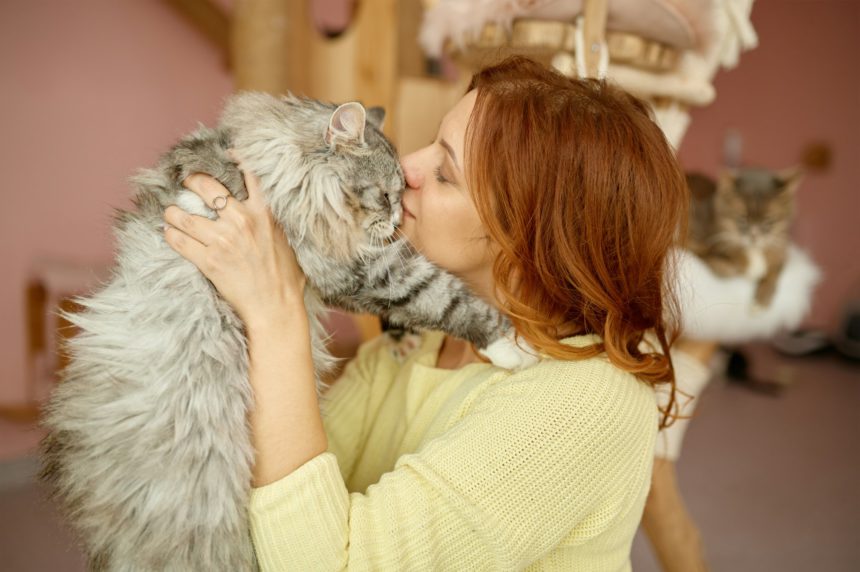Cats are popular pets and loved by many people. They offer company, affection and joy in our lives. One of the main benefits of adopting a cat is their ability to calm and relax. Studies have shown that touching and comforting a cat can reduce stress and improve the mood.
In addition, cats are relatively independent animals, making them suitable for people who are employed or who have an active lifestyle. They do not require constant attention and can meet their exploration needs and play alone. Cats are also clean animals and can be easily maintained in terms of their hygiene.
Responsible choices: how to choose the right cat for your lifestyle
When it comes to choosing a cat, it is important to consider your lifestyle and animal needs. If you have a programglomerate and spend a lot of time away from home, an independent and less demanding cat may be more suitable. On the other hand, if you have a lot of free time and want a cat that will always be with you, you can opt for a race that is known for its affectionate and friendly nature.
You also have to consider the space you have in the house. If you live in a small apartment, it may be better to opt for a cat that doesn’t need much space to move. Instead, if you have a house with yard, you can choose a cat that enjoys outdoor exploration.
Preparing the house for the arrival of your new cat: tips and tricks for a safe and comfortable environment
Before bringing the cat home, it is important to prepare the environment in which it will live. Make sure you have a comfortable place for her, like a cage or a soft pillow. Make toys and accessories availableand for cats, such as a cat weed toy or a scratcher to sharpen their claws.
You also need to make sure that the environment is safe for the cat. Hides cables and hazardous substances to prevent accidents. Block access to dangerous areas, such as the balcony or open windows. Also make sure you have a suitable litter and food for the cat.
Feline nutrition: complete guide to ensure healthy and balanced feeding
The right diet is essential for the health and well-being of the cat. Cats are carnivorous and need a rich food in animal proteins. It is recommended that you choose the special quality food formulated for cats, which contains all the essential nutrients they need.
It is also important to feed the cat according to its age and weight. Young and active cats need more foodand more meals a day, while older or sedentary cats may need smaller portions and fewer meals a day.
Make sure the cat always has access to fresh and clean water. Change the water daily and wash the container in which you chicken.
Cat Hygiene: How to Keep Your Friend Clean and Healthy Pufos
Adequate hygienic care is essential for your cat. Make sure the regular cat hairs to remove dead hair and prevent knot formation in her fur. You also have to clean his ears and cut off his nails regularly.
Periodic baths are only needed in special cases, such as when the cat gets dirty or has skin problems. In general, cats are clean animals and can keep their fur clean by lynching.
You also need to make sure that the cat is protected against parasites. Consult a veterinarian to administerdeparasitic treatments and to make the necessary vaccines.
Cat health: signs of disease and how to prevent common conditions
It is important to be careful about the signs of your cat’s disease and to consult a veterinarian immediately if you notice anything unusual. Signs of illness may include loss of appetite, lethargy, vomiting or frequent diarrhoea.
To prevent common conditions, make sure that the cat receives a balanced diet and that it is physically and mentally active. Avoid overfeed and make sure the cat receives proper exercise.
Game and activity: The importance of physical and mental exercise for your cat’s happiness
Cats need mental and physical stimulation to be happy and healthy. Make sure you offer your cat toys and activities that keep her busy and help her exercise her mind and body. Toys involving uducks, such as toy with the mouse or laser, are usually preferred by cats.
Also spend quality time with your cat, playing and interacting with it. This will strengthen the connection between you and contribute to her well-being.
Communication with cats: understand the non-verbal language of your feline and create a strong connection
Cats communicate mainly through non-verbal language, such as body movements, ear position and specific sounds. Learn to observe and interpret the signals your cat sends to understand your needs and mood.
It also creates a strong connection with your cat by offering affection and attention. Cats appreciate comforts and gentle touch. Learn to give her space when she needs and respect her as an individual.
Cat veterinary care: vaccinations, deparasitisation and periodic visits for a vinelong and healthy needle
Make sure your cat gets regular veterinary care to stay healthy. Vaccines are essential to protect the cat against serious diseases such as rabies and viral panleucopenia.
Also, your cat should be deparasitated periodically to prevent infestation with internal and external parasites. Consult a veterinarian to establish an appropriate deparasitic program and to receive additional advice on the care of your cat.
In conclusion, the adoption of a cat implies responsibility and commitment. It is important to be prepared before bringing a cat home and caring for it properly. Follow this guide completely to ensure a happy and healthy life for your cat.
